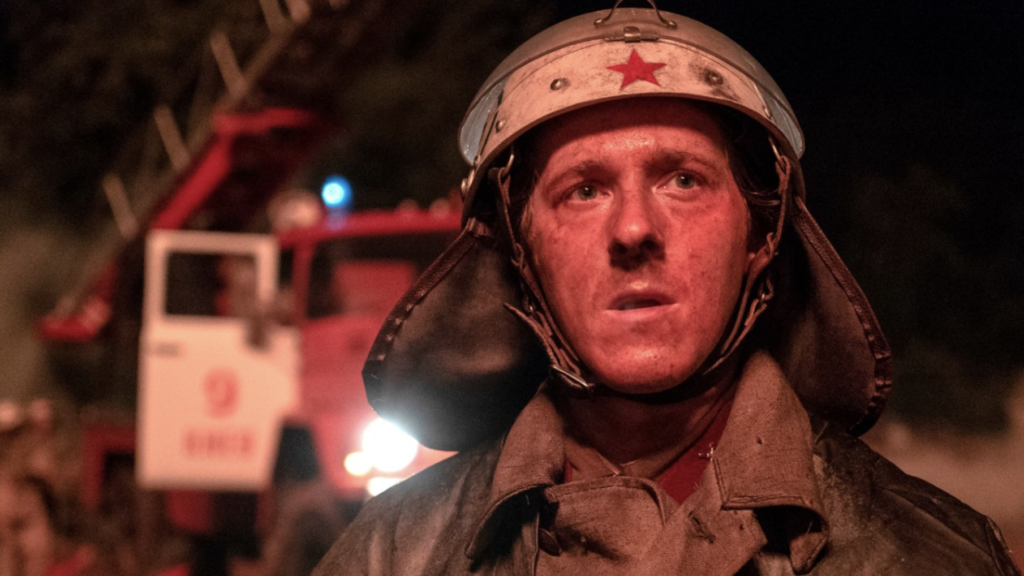Imagine a power plant with revolutionary technology, run by an oppressive government hoping to leverage its energy to strengthen its power. But one day, something goes wrong: A mysterious explosion shakes the entire facility and surrounding town, a poisonous substance fills the air, and those contaminated endure burns that eat away at their bodies.
It’s a plotline straight out of a science fiction tale, but unfortunately describes a historical event from not so long ago. The story of Chernobyl, the Soviet nuclear power plant where a reactor exploded on April 26, 1986, has fascinated HBO audiences since its release in early May.
The five-episode miniseries, written by Craig Mazin and directed by Johan Renck, has all the elements of a gripping drama: disaster, tragedy, power-hungry rulers, and underdogs fighting for justice.
Of course, many fictional narratives could produce the same elements, but what makes “Chernobyl” all the more chilling is that its story is true. At least for U.S. audiences, the series sheds light on the underreported gravity of this disaster, which released at least 40 times more radiation than the atomic bomb on Hiroshima.
Ultimately, the film series succeeds not just because of its shock factor, its historical accuracy, or its ability to present nuclear physical realities in a straightforward way. Rather, the appeal of “Chernobyl” rests upon the fact that, extraterrestrial as it might seem, it is an intensely human story.
The scientific intricacies, political corruption, and societal effects of the Chernobyl incident would be enough to make for a fascinating documentary. But this miniseries offers far more than a history lesson by crafting characters whose lives and struggles create a compelling story.
We follow a firefighter (Adam Nagaitis) who rushes to the scene the night of the explosion, unaware of the deadly radiation that has imbued the air and debris. We accompany his wife (Jessie Buckley), who frantically searches for him in the hospital and pushes past nurses to be at his bedside, defying all safety warnings.
We encounter Valery Legasov (Jared Harris), the chemist who recognizes the lethal and immense damage brought on by the explosion, and we sense his desperation in the shadow of the KGB, the former Russian secret police and intelligence agency, and Soviet officials, who try to downplay the seriousness of the event.
Thanks to stellar acting performances across the board, these characters sustain the personal nature of the story throughout the series, from the frightening first episode that plunges audiences into the power plant on that fateful night, to the sobering testimonies at the trial in the final episode.
“Chernobyl” compels viewers to accompany these characters, to feel their fear, uncertainty, loss, and eagerness to set things right. It is this sense of accompaniment which demonstrates that even through film, a dramatic and painful event can bind humans together.
There are many moments in the series that are gruesome and disturbing, but the unfiltered depictions never cross over to the perverted obsession with pain and suffering seen in other films.
The characters suffer intensely, but do so with particular dispositions, relationships, and aspirations. Their complicated stories make their suffering more personal and more real, and therefore compel the viewer to ponder it.
As we all know, suffering is hard to experience and to witness, especially when it is fueled by injustice, and “Chernobyl” does not imply otherwise. But somehow, suffering leaves an indelible mark on the human personality that, even if remedied, cannot (and perhaps should not) be forgotten.
After all, human communities often make it a point to recall painful events of the past. Jews celebrate Passover, Christians honor Good Friday, and governments build museums commemorating events like the Holocaust.
We inherit and pass on these memorials as a resolution to never repeat the evils that caused the suffering, but also as a way to revere the people who suffered. And sometimes, strangely enough, the best way to revere them is to share in their experience to the extent that we can.
We tell the stories, we contemplate poignant images of them, and we write poems and plays to express how they have touched us. Through our attempts to taste that pain with those who have gone before us, our tributes become a participation and an intimate connection.
That’s why watching a historical drama like “Chernobyl” can be both an intensely difficult and profoundly contemplative experience. Viewers come face-to-face with human weaknesses not unfamiliar to many (fear, pride, cowardice, deceit) but taken to extremes, and witness the terrible consequences. That experience provokes pity and eagerness to make amends.
Offering both a snapshot of suffering that finds ways to point to hope, “Chernobyl” delivers an unsettling but necessary message. It might not be enjoyable to watch, but it allows audiences to not just observe human pain but to ponder it, absorb it, and hopefully, combat the evils that inflict it.

